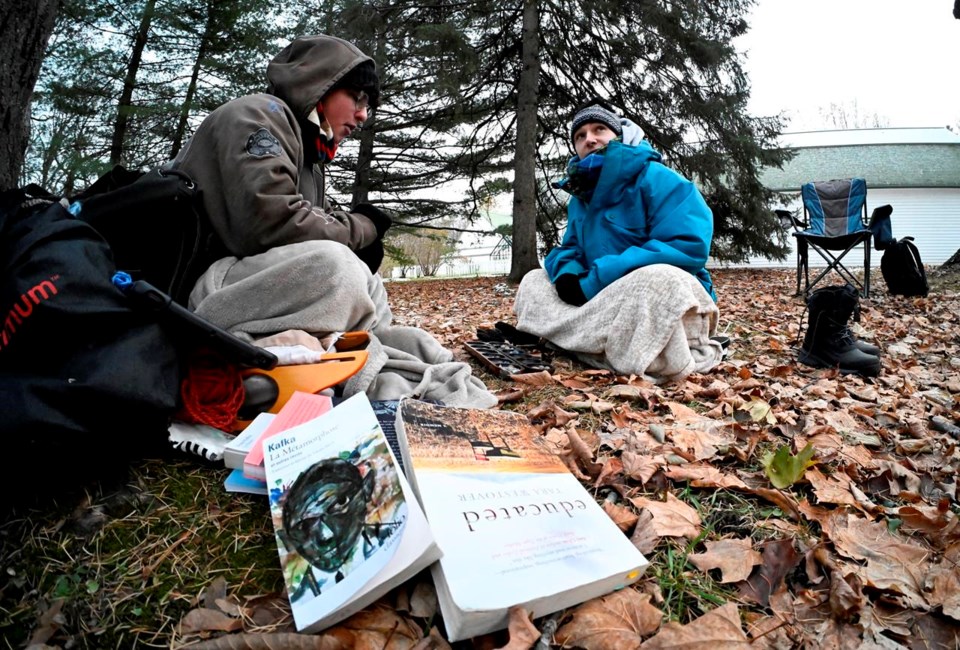MONTREAL — On Monday morning, Alexe Frédéric Migneault packed a car with blankets and drove to Quebec City.
Once in the provincial capital, the non-binary Montrealer, whose pronouns are they/them, set up camp in a park down the street from Quebec's public health insurance board. They haven't eaten since.
Migneault is on a hunger strike to pressure the board, known as the RAMQ, to add a third gender option, "X," to Quebec health cards. The strike is the culmination of what they say has been a more than two-year effort to obtain an alternative to the traditional "M" or "F" identifiers for male and female.
"I'm going on a strike to show them that it's urgent, that we can't wait forever," Migneault said over the phone on Tuesday. "It's to urge them to act as quickly as possible."
More than a mere gesture, the X designation would help protect members of Quebec's non-binary community and ensure medical records reflect accurate information, they explained. "It's a question of health, of physical health, of mental health, (for) the whole community concerned."
Though Quebec began permitting a non-binary gender marker on birth and death certificates last year, the health insurance board has yet to implement the option on its cards, which are required to access publicly funded health care.
In addition to the "M" and "F" symbols, the board incorporates a code for Quebecers' gender into the unique numbers on their health cards.
In a statement, the RAMQ said its cards and health insurance numbers are key to ensure diagnoses, treatment and care are "linked to the right person." The board added that Quebec's Health Department is currently analyzing how the introduction of a third gender designation would affect the province's health and social services network.
This is the fourth time Migneault has resorted to a hunger strike to force progress on the issue, they said. The previous strike in September ended after Migneault received verbal confirmation from the Health Department that it would eventually institute the X gender possibility.
This time, Migneault says they won't relent until they get a new health insurance number and an X marker. Water, sports drinks and vegetable broth have been their only sustenance.
Montreal-based transgender rights activist Celeste Trianon says Quebec is the only province that does not issue an identity document with inclusive gender markers. She says she has been in touch with Migneault and following their efforts for almost two years.
Other provinces permit non-binary gender markers on either driver's licences, health insurance cards or government-issued photo IDs. The federal government has made the X option available on citizenship certificates, passports, permanent resident cards and other travel documents since 2019.
Trianon says the designation is an essential element of recognition for non-binary people and that its absence leads to discrimination.
"All Canadians have an identity," Trianon said in an interview. "All Canadians deserve to be able to assert their identity, not the one that governments impose on them."
Quebec's secretariat for the condition of women says the RAMQ is participating in an interdepartmental committee tasked with producing guidance on sex and gender markers for provincial government agencies. The secretariat, which oversees that committee, says that guidance is coming soon, but it did not give a date.
"I think the only real barrier we're facing right now is indifference," Migneault said.
This report by The Canadian Press was first published Nov. 22, 2023.
Thomas MacDonald, The Canadian Press



